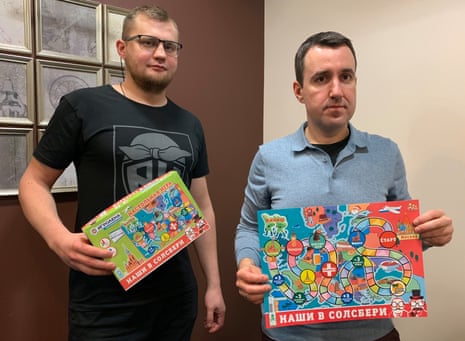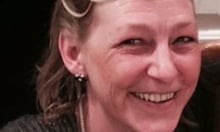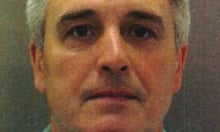A Russian toymaker has released a board game called Our Guys in Salisbury, featuring the same cities in Europe visited by the GRU agents accused of carrying out last year’s nerve agent attack.
Salisbury, the finish line in the game, is decorated with images of the city’s cathedral and two figures in hazmat suits. They are taken from photographs of the police response to the poisoning of the former spy Sergei Skripal and his daughter Yulia last March.
In one corner of the board is a spray bottle bearing a green skull and crossbones, seemingly a reference to the perfume bottle that British police said the Novichok nerve agent was transported in.
In another corner are two illustrated figures resembling the suspected assailants, Anatoliy Chepiga and Alexander Mishkin. The two Russian intelligence officers were placed under sanctions by the EU on Monday for their suspected role in the poisonings.
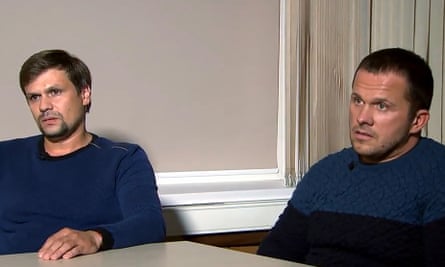
The game was developed in November by the Moscow-based toymaker Igroland. The first images of it seen online were thought to be fake. “I can’t understand, is this photoshop or not?” wrote one blogger from Yekaterinburg, Dmitry Kolezev, who published an early photograph of the game in November.
Another image of the box, posted online by a Reuters reporter this week, prompted new speculation over whether the game was real. But in an interview on Tuesday, two of the creators of Our Guys in Salisbury confirmed they had 5,000 copies of the game printed last year and were selling them online to retailers.

Mikhail Bober said he came up with the idea for the game in part because of the scale of coverage of the Skripal poisoning by the foreign press, and western accusations that Russia was responsible.
“In some way, this was an idea of our answer to western media: enough already,” said Bober, who joined Igroland last year. “To us, it’s not funny any more. It’s sad. This needs to stop.”
Asked whether he thought a board game about the Salisbury attack, in which one person died and four more were taken to hospital, would offend Britons, he said: “We didn’t want to offend anyone. On the contrary, we wanted to support our countrymen who might be offended by this situation … a lot of things are said and a lot of it without any proof.”
An October survey by the independent pollsters Levada Centre showed just 3% of Russian respondents firmly believed the Skripals, and later Dawn Sturgess, who died, and Charlie Rowley, were poisoned by Russian officers.
The game also reflects how the response to the Salisbury poisonings in particular have been treated as something of a joke in Russia. The television station RT sent out chocolate Salisbury Cathedrals as end-of-year gifts to other news agencies this year.
“If anyone died in Salisbury, then we didn’t want to offend anyone,” Bober said. “The idea of the game is a kind of joke, and a bridge of friendship. We aren’t playing around with the ideas of security forces or with poisoning.”
Asked about the images of hazmat suits, Bober said: “We just saw a lot of them on TV and decided to show it here. I think if we wanted to seriously troll and offend anyone, we would have done it differently … The idea was kind, to connect Russia with Europe.”
The game is one of several attempts in Russia to produce merchandise tied to the investigation and the media interest it has generated. Since December RT has been selling black T-shirts bearing the question “do you work for GRU?” for £13.50.
It is a reference to a question by RT’s Margarita Simonyan during an interview with Mishkin and Chepiga, in which both appeared under pseudonyms and maintained they were travelling nutritional supplement salesmen.
Ultimately, it was researchers from the online collective Bellingcat who managed to unmask the two men as graduates of military intelligence schools who had travelled widely in Europe before the March attack in Salisbury.
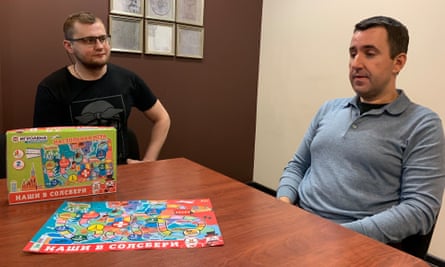
The game involves players travelling as pairs through cities including Minsk, Tel Aviv, Geneva, London and Paris, all destinations visited by the Mishkin and Chepiga before Salisbury.
The game was released shortly before Christmas. Igroland did not yet have any sales figures, but Bober said he was considering making a larger reprint. “If we rely on the PR that we’ve just gotten, we’ll make a much larger printing. We are businessmen. We’re thinking in terms of quantities and money.”
Asked whether he would consider making other games about recent events in Crimea or Ukraine, he said no. “Definitely not about Ukraine, a fair number of people have died there, there are a lot of opinions and everyone has their own truth,” he said. “There are victims there, it would be stupid to use it in a commercial project.”
